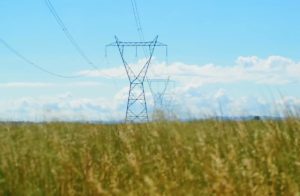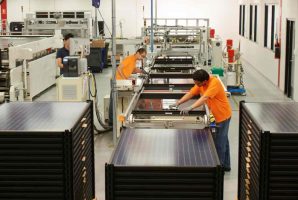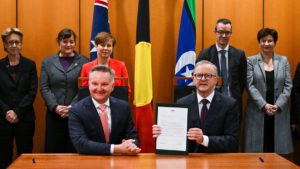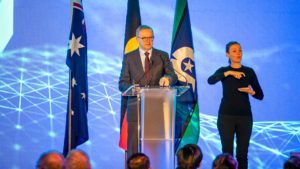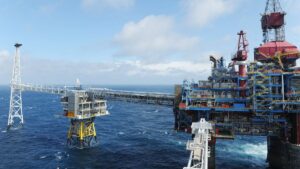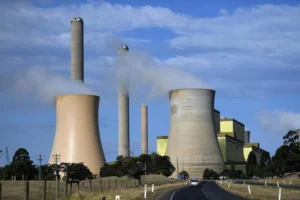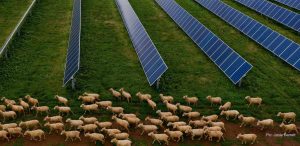Federal Labor has pledged to fund 10,000 new apprenticeship positions in the clean energy sector, in addition to a roll-out of community batteries and subsidies for electric vehicles, as part of its response to the Morrison government’s latest budget.
The plan was detailed in federal Labor leader Anthony Albanese’s budget in reply speech on Thursday night, which sought to highlight the lack of meaningful climate change measures in a Morrison government budget delivered earlier in the week.
“The government has proven incapable of developing an energy policy or dealing with climate change,” Albanese said in his budget reply speech. “Positive action on climate change and moving to net zero emissions by 2050 will create jobs, lower energy prices and lower emissions.”
“Labor has a plan to help families and communities play their part in achieving this critical target. A plan that will make electric cars more affordable and support the roll-out of community batteries.”
“A Labor Government will create a New Energy apprenticeships program to train 10,000 young people for the energy jobs of the future,” Albanese said. “This will support them with up to $10,000 over the course of their apprenticeship.”
Labor has committed to provide $100 million to the New Energy Apprenticeships program and says is had been based on feedback from a high proportion of solar companies that say they have found it hard to find electricians with the required skillsets.
The apprenticeships will be available for a range of roles in the renewable energy sector, including roles in electricity generation, energy storage projects, energy efficiency upgrades and renewable energy manufacturing.
The initiative was welcomed by the Clean Energy Council, which said it would help more Australians establish a career in the emerging clean energy sector.
“A $100 million investment to support electricians with renewable energy skills is a vital step in ensuring workers don’t just have a job, but they have a career,” Clean Energy Council chief executive, Kane Thornton, said.
“The current VET system is unwieldy and slow-moving, so if the New Energy Skills program can expedite the creation of career pathways and skills in renewable energy, that will be a major boost for the sector.”
Labor’s shadow minister for climate change and energy, Chris Bowen, said the apprenticeships plan would help young Australians take advantage of the opportunities being created in the clean energy space.
“The world’s climate emergency should be Australia’s jobs opportunity – but under Scott Morrison it’s an opportunity missed,” Bowen said following the speech.
“We’re directly supporting apprentices to train in the new energy industries that will boost our economy.”
Since the appointment of Bowen as shadow minister, Labor has sought to refocus its climate and energy policies on the opportunities to create new jobs as the Australian economy transitions away from coal.
Albanese’s budget response was restrained when it came to announcing new policies, but sets the tone and expectations for what is likely to be a bigger policy platform to be unveiled in the lead up to an election that will occur in the next 12 months.
Labor originally unveiled its community batteries plan and subsidies for electric vehicles in March, in the lead up to it the party’s policy conference.
Labor has committed to funding the deployment of up to 400 medium-scale battery storage projects to be distributed throughout suburbs to soak up excess electricity being generated by rooftop solar installations.
The batteries will be available to households would a community access model, allowing nearby homes to store and draw upon the stored energy.
Labor has also committed to two key measures to reduce the upfront costs of electric vehicles, pledging to waive import taxes and fringe benefits taxes for electric vehicles with a purchase price below the luxury vehicle threshold price (currently $77,565).
Albanese said that Labor recognised the need to act on climate change – but has so far held back from announcing any new interim targets or policies of the scale it took to the 2019 federal election.
“The rest of the world has figured this out. Cutting pollution means creating jobs,” Albanese said.


